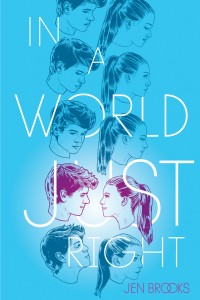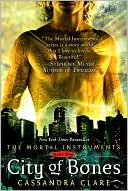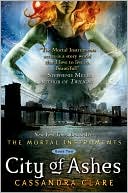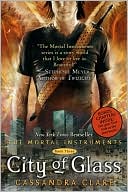books
Mythopoeia
Three manuscripts complete and I’m still convinced that my genre of choice is “mythopoeia.” The term was coined by J.R.R. Tolkien, and translated from the Greek it means “myth making.” Here is how mythopoeia is defined by the Mythopoeic Society, which is devoted to the study of mythopoeia and the Inklings:
“We define this as literature that creates a new and transformative mythology, or incorporates and transforms existing mythological material. Transformation is the key mere static reference to mythological elements, invented or pre-existing, is not enough. The mythological elements must be of sufficient importance in the work to influence the spiritual, moral, and/or creative lives of the characters, and must reflect and support the authors underlying themes. This type of work, at its best, should also inspire the reader to examine the importance of mythology in his or her own spiritual, moral, and creative development. Our members are a diverse lot, and their individual definitions of mythopoeic literature and its authors are equallydiverse.”
Popular titles that fall into this category include The Lord of the Rings and The Chronicles of Narnia, both written by Inklings. Some works honored by the Mythopoeic society include J.K Rowling’s Harry Potter series, Megan Whalen Turner’s The Queens Thief series, Neil Gaiman’s American Gods, and a work I’ve mentioned elsewhere on this blog as an inspiration, Kristin Cashore’s Graceling. Other works in TV/cinema include Star Wars, Battlestar Galactica, and Stargate. An example of mythopoeia that predates the Inklings is Le Morte d’Arthur.
Although I’ve always been drawn to science fiction and fantasy for their “sense of wonder,” I find as I grow older that it is mythopoeic science fiction and fantasy that attract me most. Such stories speak to me on a very intimate level because, as is stated in the definition above, they are about the transformation of characters’ “spiritual, moral, and/or creative lives.” Although it’s fun to make up mythologies simply for the creative exercise, applying that mythology to a reason for living, for loving, for believing is what makes my writing meaningful to me.
Some online references, if you would like to explore further:
The Mythopoeic Society website: http://www.mythsoc.org/
On mythopoeia in several media: http://tvtropes.org/pmwiki/pmwiki.php/Main/Mythopoeia
A Goodreads reading list: http://www.goodreads.com/shelf/show/mythopoeia
On the Inklings: http://tolkiengateway.net/wiki/Inklings
On Tolkien: http://www.tolkien-online.com/index.html
Some print references I have read and highly recommend:
Mendlesohn, Farah. Rhetorics of Fantasy. Middletown, CT: Wesleyan University Press, 2008. Print.
Speak up:
6 comments| TAGS:
Inklings, mythopoeia“New Adult”
I first came across the term “New Adult” last year while writing a paper for graduate school. My understanding is that it was coined in November of 2009 when St. Martin’s press held a contest looking for stories that would appeal to an older YA audiencethose in their late teens and early twenties who are “new” to adulthood. It is a crossover audience of people too old to want to read 12-to 18-year-old-YA but looking for books that are like it with older characters.
Apparently the “New Adult” wave hasn’t caught on. If you Google “college age protagonists” you will find a selection of blog entries and other articles on the subject. Two I found interesting are this and this. The first contains a nice summary of the issue then a number of interesting comments. The second I find interesting because the speaker is an articulate 16-year-old. Look here for rules and entries in the actual contest. I find myself intrigued by the whole New Adult concept and the debate over its worthiness and lack of feasibility.
Mostly I see more and more of my friends, who are adults, reading YA lit. As a former high school teacher, I also know that actual young adults reach a certain point where they cross over to reading adult lit. So does the cycle of a reader’s life go . . . kid lit–>middle grade lit –>YA lit–> adult lit–>regress to YA lit? I don’t think so, but it brings up the question of what exactly it means for a book to be YA lit these days. If it isn’t the target audience (because adults are reading it, too, and pay the same dollars for it), then what is it? The coming-of-age subject matter? (As if no books labeled “adult” are coming-of-age stories.) Is it the complexity of the story? (As if adult books are uniformly more complex than YA ones. There is a range of complexity in either category.)
What is it? Huh? Huh?
I can’t think of a YA book I’ve read that didn’t feature a young protagonist, but I feel this criterion alone is insufficient.
Anyway, I’m not alone in thinking it would be nice to see some 18- to 26-year-olds featured in novels. If the story is good, would it really not sell because of the protagonist’s age? Or is the one thing that really matters the shelf it gets put on in the big bookstore?
Thoughts?
(Update on 12/19/12: I came across this Publisher’s Weekly article today. If you are researching the topic of “New Adult” literature, you might want to check it out:http://www.publishersweekly.com/pw/by-topic/industry-news/publishing-and-marketing/article/55164-new-adult-needless-marketing-speak-or-valued-subgenre.html)
Speak up:
17 comments| TAGS:
new adult, YAWriting what you read?
Now that year’s end has me reviewing my list of books read in 2011, I’m counting all my excuses for not reading more than I wanted. Left to my own devices, I’m confident I would join the 100+ club for the year, but alas . . .
Graduate school is one excuse, since I spent the first six months finishing an MFA. (Of course part of that degree actually required me to read books, so that excuse is a little thin.) There is my young son, who goes to bed late at night, so I don’t often get to read in bed before sleep. My biggest excuse, though, is that I spent more time writing than in any previous year.
Writing and reading go hand in hand for a lot of writers, but for me this isn’t the case. My writing is affected by the style and content of what I read, so if I’m looking for inspiration, for encouragement, for a jump start, nothing is better than reading a good book. (I’ve noted in a previous entry that Graceling and Thirteen Reasons Why recently turned out to be good choices for me.) Once I’m on a roll writing, though, I find that reading interferes with my writing. It inhibits my voice and ideas because my head becomes filled with somebody else’s voice and ideas.
This is not to say I don’t read at all when I write. It means that certain parts of the writing process make me hesitant to read. Brainstorming, outlining, and revising are great times for me to be reading good fiction. When I’m actually producing pages, though, it’s better for me to abstain from reading or to read something non-fiction. Today I started a non-fiction book on medieval England.
How are reading and writing related for you? Do you find it hard to read while working on your own piece? Do you find certain books help you along?
Speak up:
comment| TAGS:
excuses, Graceling, Thirteen Reasons Why, writing processThe trilogy wait
A couple of weeks ago I finished reading Cassandra Clare’s first trilogy in The Mortal Instruments world: City of Bones, City of Ashes, City of Glass. This is a YA fantasy series I had heard good things about, and I wasnt disappointed.
The thing is there is a second trilogy taking up where the first left off. The first book of the new trilogy has already been released, the second will be out in May of next year, and the third presumably sometime after that. (Clare is also in the middle of a prequel trilogy.) I was pretty satisfied by the first trilogys ending, and I really am not a very patient person when it comes to story. If the sequel trilogy were out in its entirety now, I would read it, but since it isnt, I wont. I don t like being left hanging.
Of course this is no ones problem but my own. I understand the reasons why trilogies/series are not written to completion before being published in parts.
Still, the Mortal Instruments experience reminds me of reading Dan Simmonss Hyperion, which for some reason I didnt know had three more books before the conclusion. Luckily all four books had been published when I read the first one, so I bought the others and saw the story to its end without delay.
I discovered Philip Pullmans His Dark Materials trilogy during the release of the second book, The Subtle Knife. I had to waitimpatientlyto read The Amber Spyglass. It was a long, but totally worthwhile, wait.
And then there were the years where Battlestar Galactica (the new one) and Lost were on TV. I remember that period as being a pretty rich one in my life for consuming story.
Of course this Star Wars fan had a really hard time waiting for George Lucas to finish his saga.
Do I even have to mention Harry Potter?
My point is more than a confessed dislike of delayed endings. Besides just being driven mad by the wait, I come up with my own ideas and speculations about what should happen. The more time I wait, the more speculation. A writer who can produce something even better than I imagined is the writer whose story I recommend to everyone I know. In many ways, this puts a heavy burden on a writer to outsmart all those people who, like me, will love the world theyve been introduced to and love to speculate within it.
Ive been very pleased with some of the endings Ive waited for. Not pleased with others. And I cant help but wonder if my reaction would have been different, in either direction, had I been able to experience the whole story without waiting.
As a writer of YA fantasy and science fiction, I feel the pressure to trilogize/serialize. This scares me because I dont know that I can write a final chapter better than the composite masterpiece of all my waiting readers.
Speak up:
7 comments| TAGS:
Battlestar Galactica, City of Ashes, City of Bones, City of Glass, Dan Simmons, Harry Potter, His Dark Materials, Hyperion, Lost, Mortal Instruments, Philip Pullman, series, Star Wars, trilogy, waiting, writing processSTORY-inspired plot chart
One of the most importantscratch thatTHE most important book I’ve read about writing is Robert McKee’s Story.
McKee’s book is based on his famous seminars he delivers world-wide and is actually for screenwriters, but his advice is completely relevant for novel writers. On his website, he says his alumni have won 35 Academy Awards (160+ Nominations) and 164 Emmy Awards (500+ Nominations). The dust jacket of my hardcover copy says works written, directed, or produced by his alumni include Batman Forever, Beauty and the Beast, E.R., Forrest Gump, Friends, Law & Order, Saving Private Ryan, Seinfeld, Sesame Street, Toy Story, and the X-Files, and my copy is something like eight years old.
Two important concepts I took from the book are the “gap” and “two goods/two bads.” Essentially, the “gap” opens up when a character takes action they expect to yield a certain result, but the reality turns out differently. Two goods/two bads refers to character choices, which are only meaningful if the choice is between two equally strong goods or two equally strong bads. To really understand these concepts, read the explanations and examples in McKee’s book.
Reading Story led to my creation of a “gap chart” for my first manuscript (science fiction set on a faraway planet). My main character, Aiden Carter, is an ambitious eighteen-year-old on the fast track to the equivalent of the presidency. His skeleton in the closet is his mother, who frequently breaks the law against charity. Here is the very top of the chart:
| Plot advances | What Aiden expects | What happens instead | Possible choices/ consequences | Decision/new direction | What is risked |
| Aiden Carter cheats in a track meet, next morning called to “principal’s” office. | Fears either a punishment for cheating or questions about his collapse on the track. | Questioned by the military government about his mother, Hannah Carter.INCITING INCIDENT | TWO GOODSTell truth-avoid getting in trouble.
Lie-protect mother from prosecution. |
Lies. | University honor status. |
| Aiden walks home.PROGRESSIVE COMPLICATIONS BEGIN | Hannah Carter is safe. (because his lies will protect her) | Hannah Carter is arrested anyway. | TWO GOODSDon’t testify-possibly prevent her conviction.
Testify-save his own career. |
Testifies. | Hannah Carter’s life. |
This chart goes on for twelve more rows with Aiden taking actions and having his world react unexpectedly, which then causes him to take more actions where more and more is risked. It is that far-right column that gives the story it’s drama. My “What is risked” column progresses from “university honor status,” through things like “his identity,” “his secret power,” “his life,” “the entire planet.” As you go further down my risk column the stakes for Aiden get higher and higher until the largest possible thing is at stake.
I made this gap chart after I had written the manuscript. It helped me see my story in a way that was much more useful than a mere outline of the plot. It’s one of the most important writing exercises I’ve ever done.
For me it had to be part of the rewrite, but a different writer might benefit from doing this exercise at the outset. Some entry soon I’ll write a few words on the plotting vs. pantsing question.




